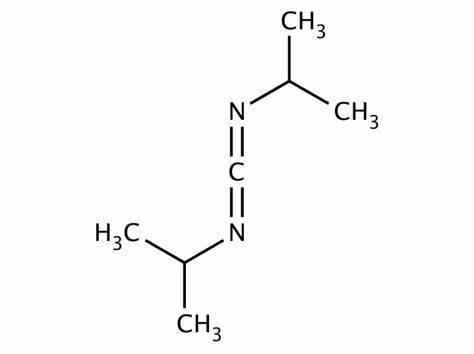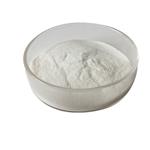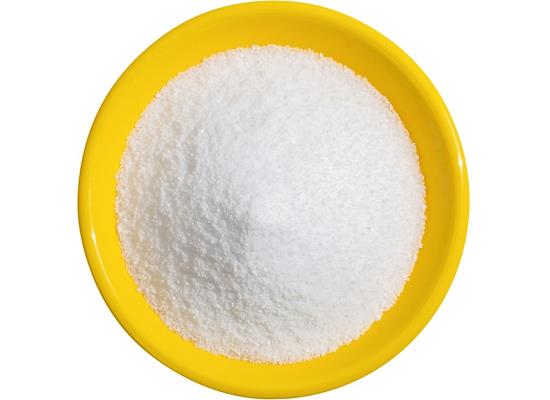Study on the versatility and application of N,N'-diisopropylcarbodiimide (DIC) in chemical synthesis
Introduction
N,N'-diisopropylcarbodiimide (DIC) is a kind of organic compound with a special structure, and its molecule contains carbodiimide group, which has high chemical activity. N,N'-diisopropylcarbodiimide as an important organic synthesis reagent, has a wide application prospect in the field of chemical synthesis. In recent years, with the continuous development of chemical synthesis technology, DIC has made remarkable progress in the application of peptide synthesis, esterification reaction, natural product synthesis, and other fields. In this paper, the chemical properties, synthesis methods, condensation mechanism, and application of DIC are reviewed to provide a reference for researchers in the field of chemical synthesis.
Chemical properties
N,N'-diisopropylcarbodiimide is a colorless transparent liquid with a lower vapor pressure and a higher boiling point. Its molecular formula is C7H14N2 and its molecular weight is 126.2. It is liquid at room temperature and is easy to handle and store. In addition, it has high stability and reactivity, being able to maintain stability under non-catalytic conditions, while showing strong reactivity under catalytic conditions. These characteristics make it widely used in the field of chemical synthesis.1

Synthesis method
(1) Reaction of diisopropyl chloroformate and hydro cyanamide
This method has the advantages of mild reaction conditions and high yield, but the raw material is susceptible to moisture, and the moisture needs to be strictly controlled.
(2) Thermal reaction of allyl chloride and diisopropyl carbonate
The raw material is easy to obtain, the reaction conditions are simple, but the product purity is low, and the yield is not high.
(3) Reaction of isopropyl cyanide methyl silver chloride with nuclear reagent
This method has mild reaction conditions and high yield but requires silver salt and high cost.
In recent years, researchers have been trying to optimize the synthesis of DIC to increase the yield, reduce the cost, and reduce the environmental impact. For example, the direct synthesis of DIC using propylene alcohol and hydrogen cyanide not only reduces the reaction steps but also reduces the cost.2
Condensation mechanism
N,N'-diisopropylcarbodiimide condensation is a common chemical synthesis method, mainly used to generate ester compounds. The typical mechanism of DIC condensation includes three steps: activation, ester formation, and nucleophilic attack. First, N,N'-diisopropylcarbodiimide and activators such as 1-hydroxy-1h-pyrrolium-2,3-diketo-4-formate, or HOBt, are used as activation agents to activate acid and alcohol groups to more easily esterifying forms. It then reacts with carboxylic acids and HOBt to form an activated ester intermediate, which is more vulnerable to nucleophiles. Finally, a nucleophile (such as an alcohol or amine) is added to the activated ester intermediate to form the final ester product. The whole reaction process is usually carried out at room temperature and needs to be carried out in anhydrous conditions to prevent water interference with the reaction.3
Applied research
(1) Peptide synthesis
N,N'-diisopropylcarbodiimide is used as a shrinkage agent in peptide synthesis, has a good condensation effect, and is easy to handle. Because of its liquid state under normal temperature and pressure, it is easier to operate than the commonly used waxy solid shrinking mixture. In addition, the by-product N,N’-diisopropyl urea produced in the reaction is soluble in most organic solvents and helps in the post-treatment of the product.
(2) Esterification reaction
Used as an esterification agent in esterification reactions, carboxylic acids, and alcohols can be efficiently converted into ester compounds. Because of its mild reaction conditions, high selectivity, and high yield, it has been widely used in esterification reactions.4
(3) Synthesis of natural products
N,N'-diisopropylcarbodiimide also has important application value in the synthesis of natural products. The DIC condensation reaction can construct the ester bond, amide bond, and other structural units of natural products, which provides an effective method for the synthesis of natural products.5
Conclusion and Prospect
N,N'-diisopropylcarbodiimide as an important organic synthesis reagent, has shown extensive versatility in the field of chemical synthesis. Its unique chemical properties, efficient synthesis method, and unique condensation mechanism make it widely used in peptide synthesis, esterification reactions, natural product synthesis, and other fields. In the future, with the continuous development of chemical synthesis technology and the exploration of optimizing its synthesis methods, the application of DIC in the field of chemical synthesis will be more extensive and in-depth.
References
[1].Verma, A., Diisopropylcarbodiimide. Synlett 2012, 23 (07), 1099-1100.
[2].Carpino, L. A.; El-Faham, A., The diisopropylcarbodiimide/1-hydroxy-7-azabenzotriazole system: segment coupling and stepwise peptide assembly. Tetrahedron 1999,55 (22), 6813-6830.
[3].Nekoueishahraki, B.; Samuel, P. P.; Roesky, H. W.; Stern, D.; Matussek, J.; Stalke, D., Organobismuth (III) and dibismuthine complexes bearing N, N′-Disubstituted 1, 8-diaminonaphthalene ligand: synthesis, structure, and reactivity. Organometallics 2012, 31 (18), 6697-6703.
[4].Program, N. T., Toxicology and carcinogenesis studies of diisopropylcarbodiimide (Cas No. 693-13-0) in F344/N rats and B6C3F1 mice (dermal studies). National Toxicology Program technical report series 2007,(523), 1-286.
[5].Zhang, J.; Zhou, X.; Cai, R.; Weng, L., Reactivity of organolanthanide and organolithium complexes containing the guanidinate ligands toward isocyanate or carbodiimide: Synthesis and crystal structures. Inorganic chemistry 2005, 44 (3), 716-722.
You may like
Related articles And Qustion
See also
Lastest Price from N,N'-Diisopropylcarbodiimide manufacturers

US $1.00/KG2025-12-14
- CAS:
- 693-13-0
- Min. Order:
- 1KG
- Purity:
- 99.9%
- Supply Ability:
- 500KG

US $120.00-1200.00/g2025-08-20
- CAS:
- 693-13-0
- Min. Order:
- 1g
- Purity:
- 98%min
- Supply Ability:
- 200tons


